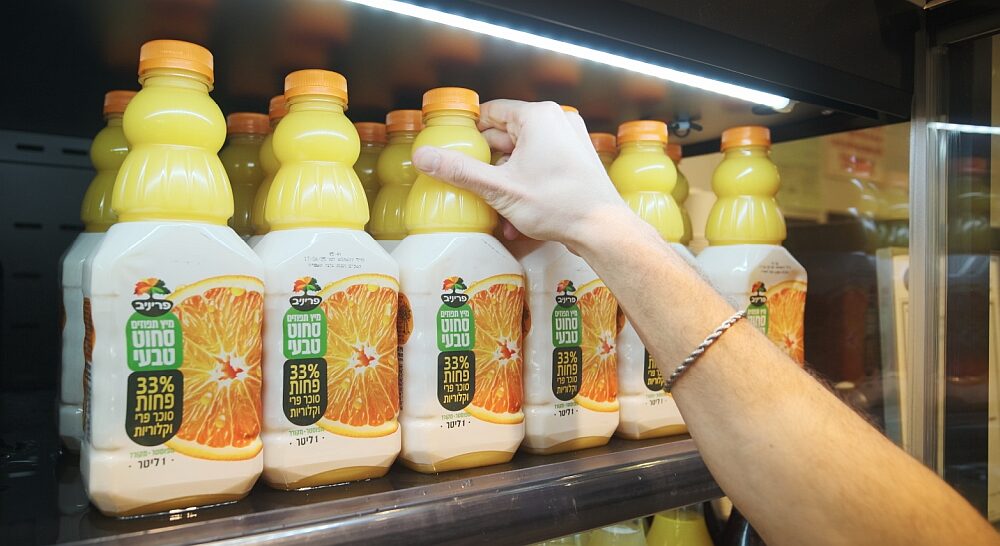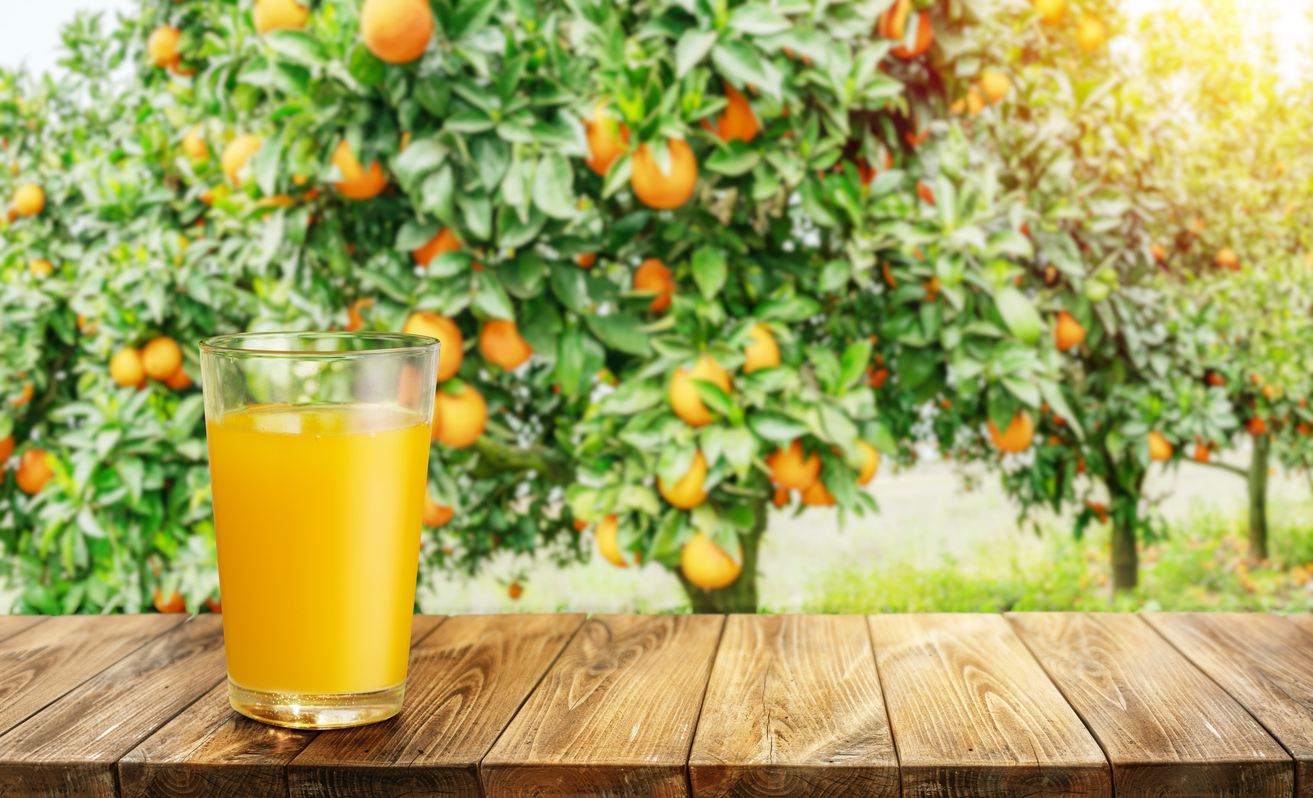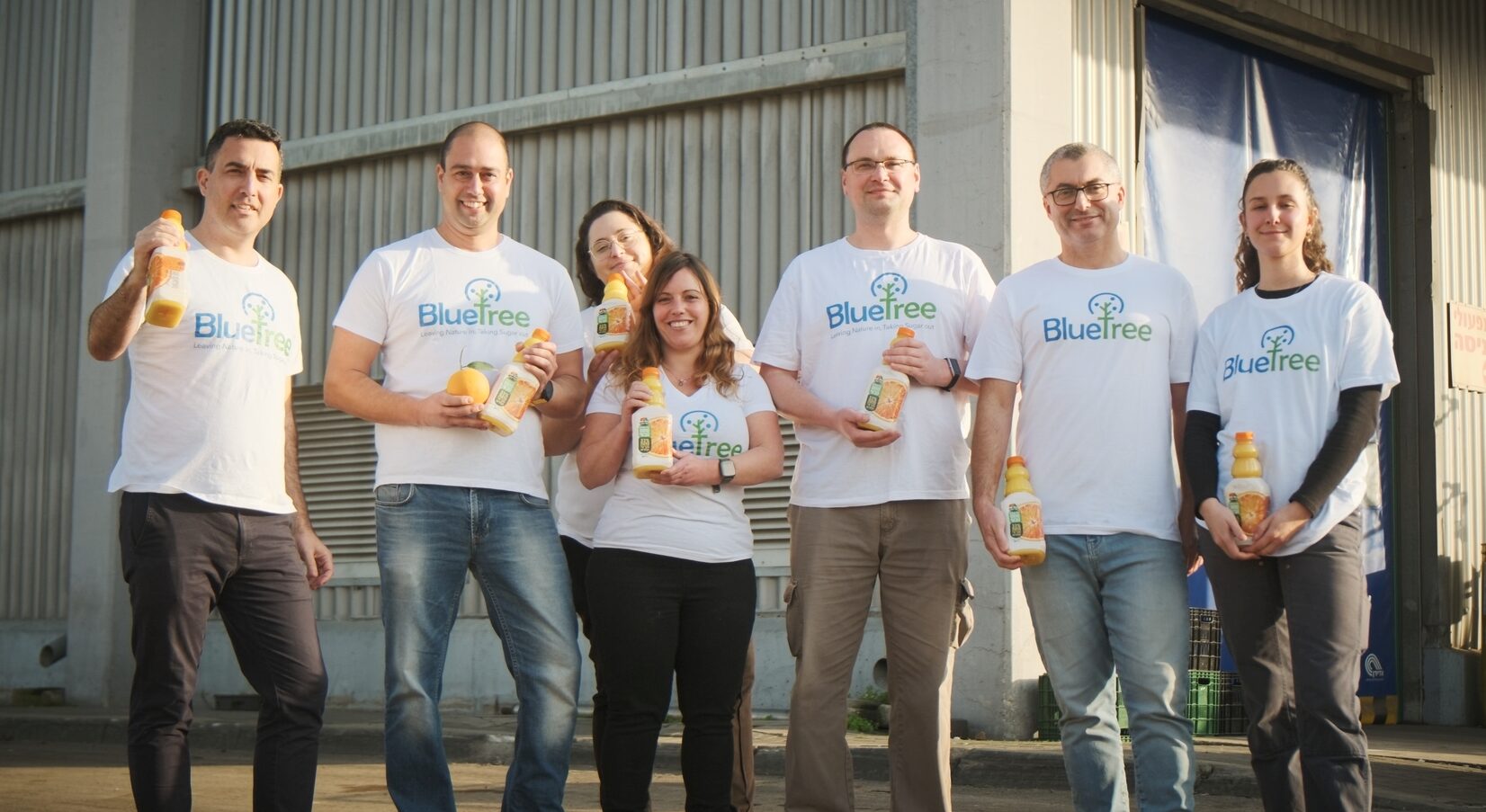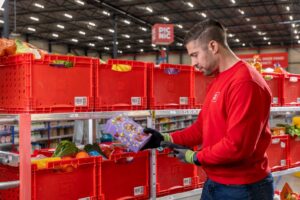BlueTree Technologies—an Israeli startup using a patented process to selectively remove sugars from juice and milk—has struck a deal with a manufacturer in Thailand and is in talks with leading juice players in Latin America after successfully scaling its tech with Israeli juice maker Priniv.
“Getting the installation at Priniv was a huge milestone for us,” CEO Michael Gordon tells AgFunderNews.
“The orange juice with 33% less sugar is now in the market [labeled as sugar reduced orange juice] and they are very satisfied with the results. This is huge for us because the first question any [prospective] customer asks us is: Does your tech work on an industrial scale, and can we see it for ourselves? The answer on both counts is now yes.”
On the back of this, he says, “We’ve recently signed an agreement with a juice manufacturer in Thailand, which has just implemented the final phase of its sugar tax on beverages.
“We’ve also signed an agreement with a dairy company to develop low- to zero-sugar dairy products. To have a product labeled as zero sugar, you need to reach less than 5% of sugar content, and we’ve now achieved this in milk. We’re initially focused on juice but we hope to commercialize the dairy solution in 2026.
“We’re also looking at beer and wine, but that’s further down the road.”
Latin America
In Latin America, he says, sugar taxes are having a big impact in several markets, while consumers that used to drink orange juice daily now see it as more of a weekend treat and are actively looking for reduced sugar options.
Some markets also require front-of-pack warning labels for products deemed high in sugar (Chile) or high in sugar, sodium, or saturated fat (Mexico, Peru, Uruguay), adds Gordon, who says BlueTree has just closed a small funding round backed by new investors from Latin America.
“Our focus is on Latin America and Southeast Asia not just because there are local markets there we can reach but because so much fruit is grown and processed there for export markets such as the US and Europe.
He adds: “There’s a huge amount of citrus coming from Brazil, Argentina and Mexico and then for tropical fruits production is focused in Central America and Southeast Asia. Our aim is that together with several manufacturers, we can develop sugar reduction hubs that will provide sugar reduced juice for the local population and the export market.”
Over the past year, BlueTree has conducted more than 10 successful trials with global brands, said Gordon. “They send us their raw material, we reduce sugar at our partner Priniv’s industrial-scale plant, put the juice in barrels and send it back to them for testing.”
On a regulatory front, BlueTree has self-GRAS status in the US, while in Europe, it commissioned a legal and scientific assessment from Rödl & Partner, “which concluded that our process is highly unlikely to be classified as ‘novel’ under EU law,” says Gordon. “This means our tech can be used in the EU without requiring pre-market approval as it relies on established methods, and testing confirms that the only material change is the reduction of sugar.”

How it works
Right now, juice makers have three main options if they want to reduce sugar in juice, says Gordon, who joined BlueTree as CEO in 2022, a couple of years after the company was founded by Didier Toubia and Yuval Klein.
First, they can simply dilute it with water, which also dilutes the experience and means you can’t market a product as ‘100% juice.’
Second, they can mix lower sugar juices such as watermelon with higher sugar ones such as apple or grape, which is fine if you’re making blends but no use if you’re selling orange juice, he says.
Third, they can explore technical sugar-reduction solutions ranging from enzymatic treatments that convert sugars to fibers (Better Juice) to microbes that eat the sugar (IncreBio).
BlueTree, in contrast, uses ultrafiltration coupled with adsorption to selectively remove disaccharides such as sucrose, lactose, and maltose from juice, milk, or beer without sacrificing taste or compromising brands’ clean label credentials, claims Gordon.
The basic premise behind the tech is that disaccharides (sugar molecules comprising two simple sugars) such as sucrose (fructose + glucose) and lactose (galactose + glucose) are not as sweet as monosaccharides (simple sugars such as glucose and fructose), says Gordon.
As a result, removing a third of the sugar in a juice through removing disaccharides does not necessarily make a beverage taste a third less sweet, he explains. “It’s not a linear effect, so if you cut it by 30%, it tastes more like 15% because fructose [the simple sugars remaining in the beverage] is sweeter than sucrose. With a 20% sugar reduction using this approach, you won’t even notice a difference.”
“The question was, how do we remove the disaccharides but leave the monosaccharides and other things in the juice intact?”
BlueTree’s first (granted) patent describes a two-step process, he explains. “The first part is ultrafiltration, and the other part is an adsorption process. We found out the mineral zeolite acts like a magnet to disaccharides in juice vs monosaccharides and organic acids.”
BlueTree also has a patent application combining ultrafiltration and an alternative “smart separation layer solution,” not involving zeolite, that is ideal for very high capacity production, he says.
“I can’t share details but it’s suitable for a continuous process and also works with [premium] juices that undergo high pressure processing [a cold pasteurization method that preserves a juice’s ‘freshly-squeezed’ taste and texture].”
By contrast, firms using enzyme-based technology to reduce sugar “can’t put the juice through an HPP process because it won’t kill the enzymes,” he claims.

Labeling
According to Gordon, labeling differs from one territory to another. “In the US, as long as you’re selling 100% juice and not adding anything, you can label it as sugar-reduced juice. In the EU, currently, juice that has gone through our process must be labeled as a drink or a beverage.”
However, this will soon change under the so-called ‘breakfast directives,’ which will permit terms such as ‘reduced-sugar fruit juice’ provided nothing has been added to the juice, he notes.
“This should start in June 2026, so a lot of European brands are saying we need to start working together now, because June 2026 is not far away.”
Consumers want less sugar… and a clean label
Consumers are looking for lower-sugar options across the beverage set in all markets, says Gordon.
But they also want natural, less processed, clean-label products, and BlueTree can deliver both. “The products can still be labeled as sugar reduced 100% juice and you still only have one ingredient on the ingredients list.”
The tech works on all forms of juices (from concentrate, not from concentrate, HPP etc) and can be implemented before or after the juice concentration or reconstitution, notes Gordon, who says concentrate produced from juices that have been through BlueTree’s process will be lighter to transport.
Further reading:
NEW REPORT: Agrifoodtech funding in developing markets surges 63%, bucking global decline





